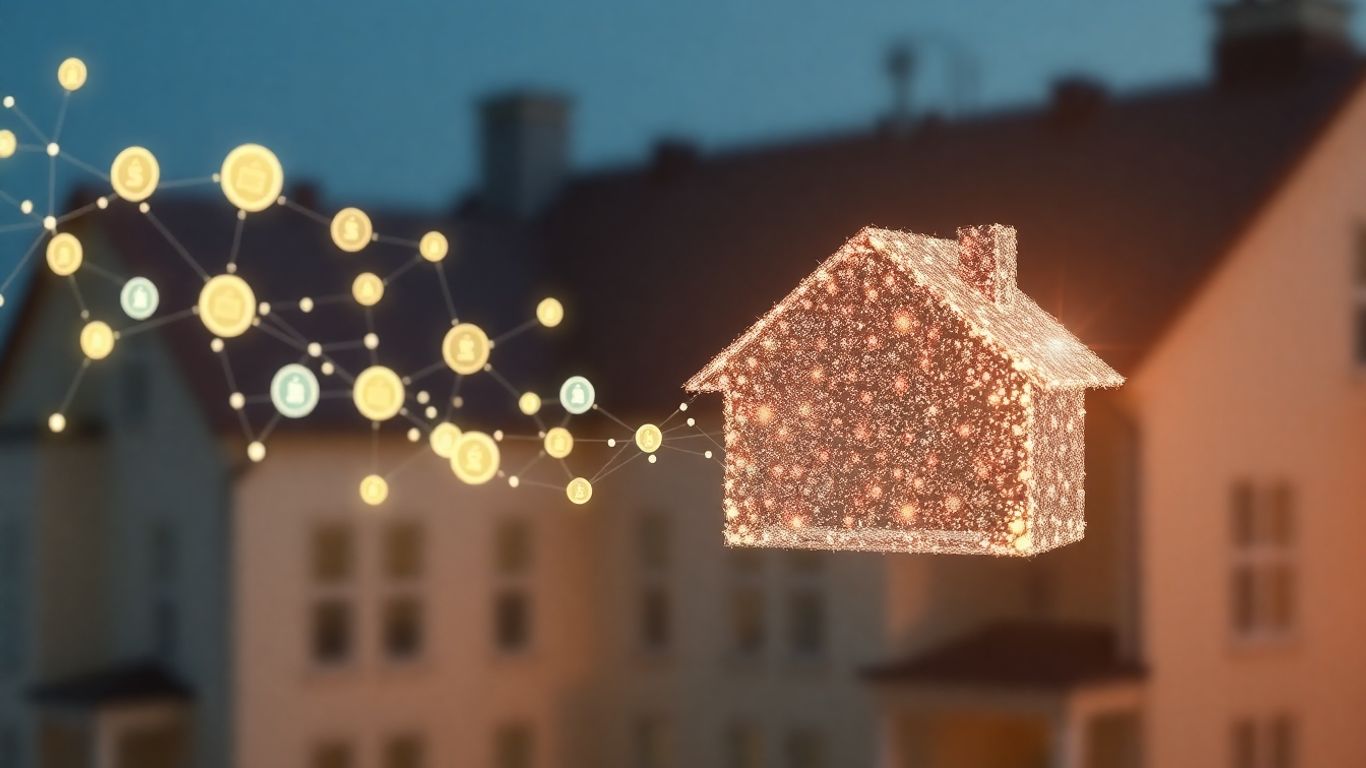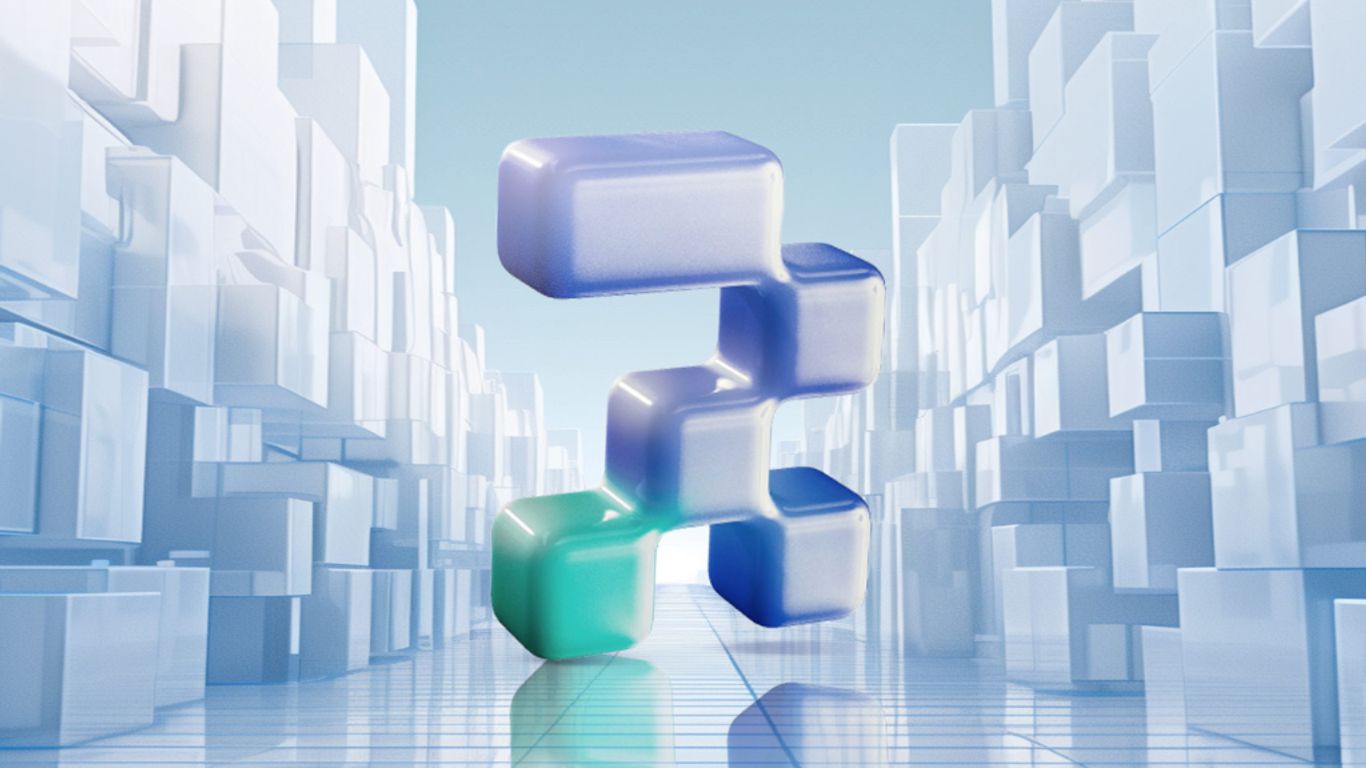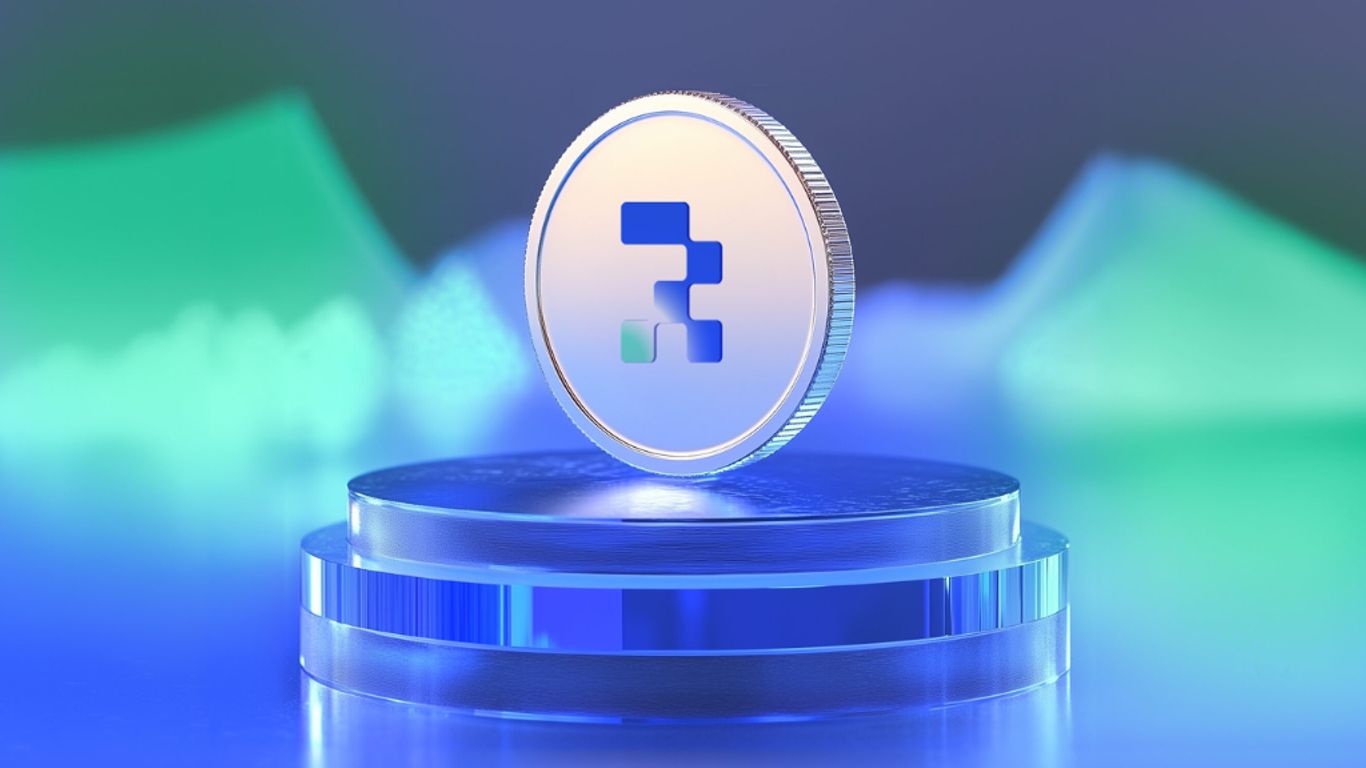So, mortgage-backed securities, or MBS, have been around for a while. They're basically a way to bundle up home loans and sell them off. Now, imagine taking that whole process and putting it on a blockchain. That's pretty much what tokenization is doing for MBS. It's a big change, and it's making things different for investors and how the whole market works. We're talking about making things faster, cheaper, and maybe even a little easier to understand. This whole blockchain mortgage-backed securities thing is definitely worth a closer look.
Key Takeaways
- Tokenized mortgage-backed securities are digital versions of traditional MBS, using blockchain for easier trading and ownership.
- Blockchain technology makes transactions more secure and transparent, reducing fraud and building trust.
- Smart contracts automate tasks like paying investors and transferring ownership, cutting out middlemen.
- Tokenization can make real estate investments more accessible through fractional ownership, opening doors for more people.
- The market for tokenized assets is growing, with evolving regulations aiming to support its expansion.
Understanding Tokenized Mortgage-Backed Securities
Defining Tokenized Mortgage-Backed Securities
So, what exactly are tokenized mortgage-backed securities (MBS)? Think of them as digital versions of the traditional MBS we've known for a while. Instead of paper certificates or complex digital records held by a few institutions, these are created using blockchain technology. Each token represents a piece of ownership in a pool of mortgages. This means you can own a fraction of a mortgage-backed security, which wasn't really practical before. It's like taking a big, complex financial product and breaking it down into smaller, more manageable digital pieces.
Key Differences from Traditional Mortgage-Backed Securities
Traditional MBS can be a bit of a black box for many investors. They're often illiquid, meaning it's tough to buy or sell them quickly without taking a hit on the price. Plus, the whole process can involve a lot of paperwork and intermediaries, which adds time and cost. Tokenized MBS aim to fix that. The big difference is fractional ownership – you can buy a small slice of the security. This makes high-value investments more accessible. Also, because these tokens live on a blockchain, they can be traded much more easily on secondary markets, boosting liquidity. And thanks to the blockchain's transparent nature, you can see exactly what you own and track transactions.
Here’s a quick look at some key distinctions:
- Ownership Structure: Traditional MBS often involve direct ownership of a share in a trust. Tokenized MBS represent ownership through digital tokens on a blockchain.
- Liquidity: Traditional MBS can be hard to sell quickly. Tokenized MBS, being digital assets, can be traded more readily on specialized exchanges.
- Accessibility: Investing in traditional MBS often requires significant capital and access to specific financial channels. Tokenization allows for smaller investment amounts, opening the door to more investors.
- Transparency: While some information is available for traditional MBS, blockchain offers a more direct and verifiable record of ownership and transactions.
The Mechanics of Tokenized Mortgage-Backed Securities
At its core, tokenizing MBS involves taking a pool of mortgages and representing them as digital tokens on a blockchain. This process starts with selecting and verifying the underlying mortgages. Think of it like this: a company gathers a bunch of home loans that are performing well. Then, they use smart contracts – self-executing code on the blockchain – to create digital tokens. Each token represents a specific share of the value and income generated by that mortgage pool. When someone buys a token, the smart contract records their ownership. As mortgage payments come in, the smart contract can automatically distribute the proceeds to the token holders. It’s a way to automate a lot of the administrative work that usually comes with managing these securities.
The whole system relies on the blockchain's ability to create a secure, transparent, and immutable record of ownership and transactions. This technology makes it possible to manage complex financial instruments like MBS in a more streamlined and accessible way for a wider audience of investors.
Here’s a simplified breakdown of how it works:
- Asset Selection: A pool of mortgages is identified and vetted for quality and compliance.
- Token Creation: Smart contracts are deployed on a blockchain to mint digital tokens, each representing a fractional ownership stake in the mortgage pool.
- Distribution: These tokens are offered to investors, who can purchase them using cryptocurrency or traditional currency.
- Management & Distribution: As borrowers make payments, smart contracts automatically handle the collection and distribution of funds to token holders.
The Role of Blockchain in Transforming MBS
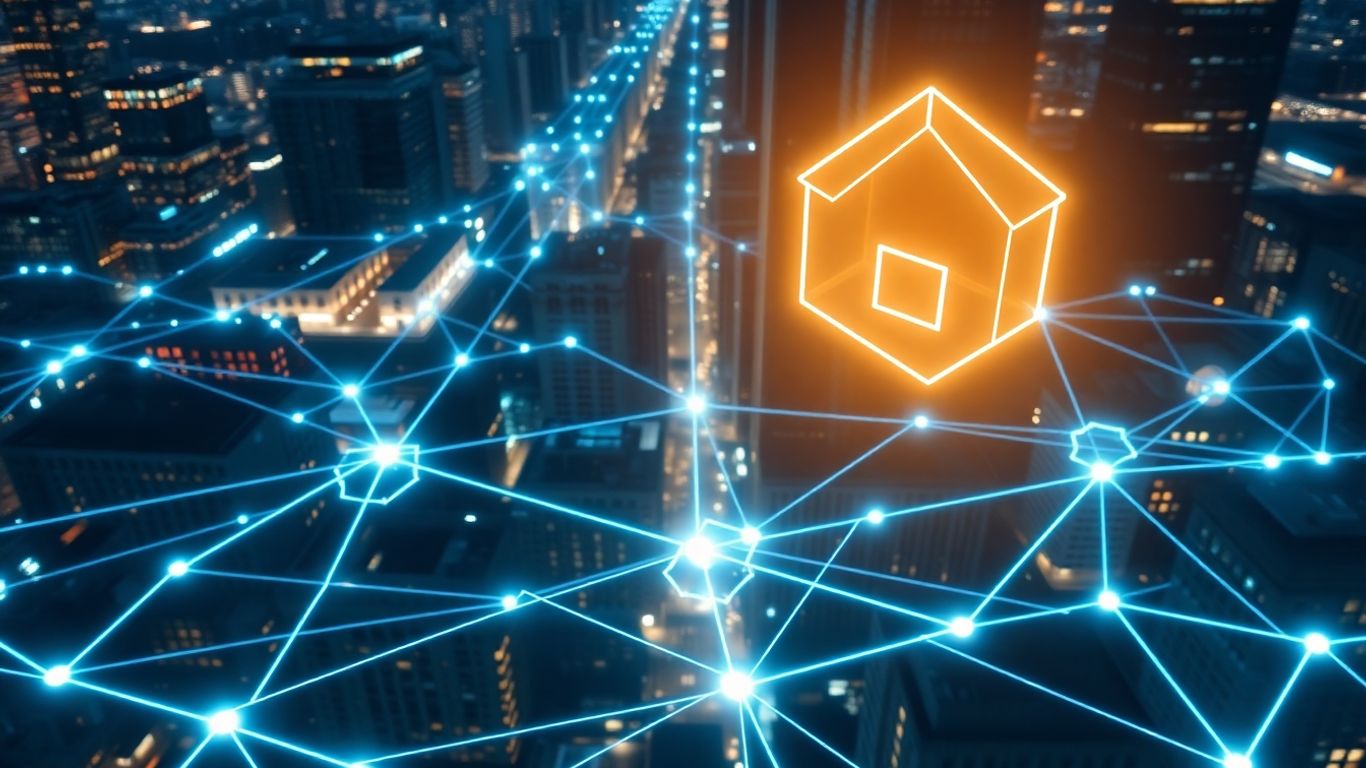
So, how exactly is blockchain shaking things up for mortgage-backed securities (MBS)? It's all about making things more secure, open, and frankly, less of a headache. Think of blockchain as a super-secure digital ledger that everyone involved can see, but nobody can mess with. This is a big deal for MBS, which can sometimes feel a bit opaque.
Blockchain Technology and Smart Contracts
At its core, blockchain provides a decentralized and unchangeable record of every single transaction. This means that when a tokenized MBS changes hands, or when payments are made, it's all logged permanently. This immutability is key to building trust in the system. On top of this, we have smart contracts. These are basically self-executing agreements written in code. They automatically carry out specific actions when certain conditions are met, like releasing funds to investors once a payment is confirmed. It's like having a digital escrow agent that never sleeps.
Enhancing Transparency and Security in Transactions
Remember how I mentioned that ledger everyone can see? That's where the transparency comes in. With traditional MBS, tracking ownership and transaction history can be a maze. Blockchain cuts through that by providing a clear, real-time audit trail. Anyone can verify who owns what and when transactions occurred. This drastically cuts down on the chances for fraud or errors. It's a much cleaner way to handle complex financial instruments. The U.S. mortgage-backed securities market is huge, valued at around $11 trillion, and this technology aims to fix some long-standing inefficiencies in mortgage securitization technology.
How Smart Contracts Automate Key MBS Aspects
Smart contracts are the workhorses making tokenized MBS run smoothly. They automate a lot of the manual processes that used to take time and cost money.
- Payment Distribution: Smart contracts can automatically send out interest and principal payments to token holders as soon as they are received from the underlying mortgages. No more waiting for manual processing.
- Ownership Transfers: When a token is sold on a secondary market, the smart contract instantly updates the ownership records on the blockchain. This makes trading much faster and simpler.
- Compliance Checks: Rules and regulations can be coded directly into smart contracts, automatically verifying that transactions meet certain criteria before they are executed.
The shift to blockchain and smart contracts means that processes previously requiring multiple intermediaries and significant paperwork can now be handled digitally and automatically. This not only speeds things up but also reduces the potential for human error and the associated costs.
This automation means that things like loan-level reporting, which used to take weeks, can now happen in minutes. For instance, some platforms have cut reporting time from 55 days down to just 30 minutes. This kind of speed and accuracy is a game-changer for investors who need timely information.
Benefits of Tokenization for Mortgage-Backed Securities
So, what's the big deal with tokenizing mortgage-backed securities (MBS)? It really boils down to making things easier and more open for everyone involved. Think about it: the old way of doing things with MBS was pretty clunky, involving lots of paperwork and middlemen. Tokenization aims to fix that.
Enhanced Liquidity and Market Access
One of the most talked-about advantages is how tokenization can make MBS much easier to buy and sell. Traditionally, getting in and out of MBS can be a slow process. It's not like trading stocks on a public exchange. But with tokens, representing a piece of an MBS, you can potentially trade them much more quickly on digital platforms. This increased ease of trading means investors can get their money in and out faster when they need to. It also opens the door for more people to invest in these types of assets, not just the big players.
Reduced Transaction Costs and Friction
Remember all those fees and delays that come with traditional financial transactions? Tokenization, especially when powered by smart contracts on a blockchain, can cut through a lot of that. Smart contracts automate many of the steps that used to require manual intervention from intermediaries like brokers or custodians. This automation can lead to:
- Fewer administrative tasks.
- Lower fees for processing transactions.
- Faster settlement times.
Basically, it streamlines the whole process, making it cheaper and quicker to move these assets around.
Increased Transparency and Security for Investors
This is a big one. Because tokenized MBS live on a blockchain, every transaction and ownership record is logged in a way that's very hard to tamper with. This creates a clear, verifiable history for each token. Investors can see exactly where their investment stands and who owns what. It’s like having a public ledger that everyone can check.
The immutable nature of blockchain records means that once a transaction is recorded, it's permanent. This builds a higher level of trust and makes it much harder for fraudulent activities to occur within the MBS market. It's a significant step towards a more reliable financial system.
Navigating the Tokenization Process
So, you've got these mortgages, and you want to turn them into digital tokens. It sounds complicated, but it's really about breaking down a big, complex process into manageable steps. Think of it like preparing ingredients before you start cooking – you wouldn't just throw everything into the pot at once, right?
Preparing the Underlying Mortgages
First things first, you need to pick the right mortgages. It's not just any mortgage; you're looking for ones that are solid, perform well, and are already following all the rules. Asset managers or lenders go through their portfolios to find these gems. It’s a bit like sorting through a collection of old coins to find the valuable ones. After you've got your potential pool, you have to do some serious digging. This means checking out the borrowers' creditworthiness – can they actually pay this back? You also need to make sure every single mortgage is legally sound and up to snuff. And, of course, you've got to figure out what all these mortgages are actually worth right now. This groundwork is super important because it sets the stage for everything else.
Performing Due Diligence on Mortgage Assets
This is where you really get into the weeds. You're not just taking someone's word for it. You're digging into the details of each mortgage. This involves:
- Creditworthiness Assessment: Really looking at the borrowers' ability to keep up with payments. A steady income stream is key here.
- Legal Compliance Checks: Making sure all the paperwork and terms align with current laws and regulations. Nobody wants legal headaches down the line.
- Valuation Analysis: Getting a clear picture of the current market value of the properties tied to these mortgages. This helps set the value for the digital tokens.
This whole process is about building trust. By being thorough upfront, you create a foundation that investors can rely on, reducing the uncertainty that sometimes surrounds these kinds of investments.
Creating Digital Tokens Through Smart Contracts
Now for the tech part. This is where smart contracts come into play. These are basically self-executing agreements written in code. They automate a lot of the heavy lifting. For instance, each token you create will represent a piece of the mortgage pool, making it easy for multiple people to own a share. The smart contract handles the transactions automatically, cutting out a lot of the old-school paperwork and middlemen. The actual creation of these tokens involves picking the right blockchain platform, like Ethereum, and defining the token standard, such as ERC-20, to make sure they work as intended. Then, the smart contracts are developed and deployed to manage how the tokens behave, including rules for transfers and making sure everything stays compliant. Finally, the tokens are minted, making them ready to be bought and sold. It’s a pretty neat way to bring traditional assets into the digital age, and it’s all about making things more efficient and accessible for investors in real estate.
Technological Infrastructure for Tokenized MBS
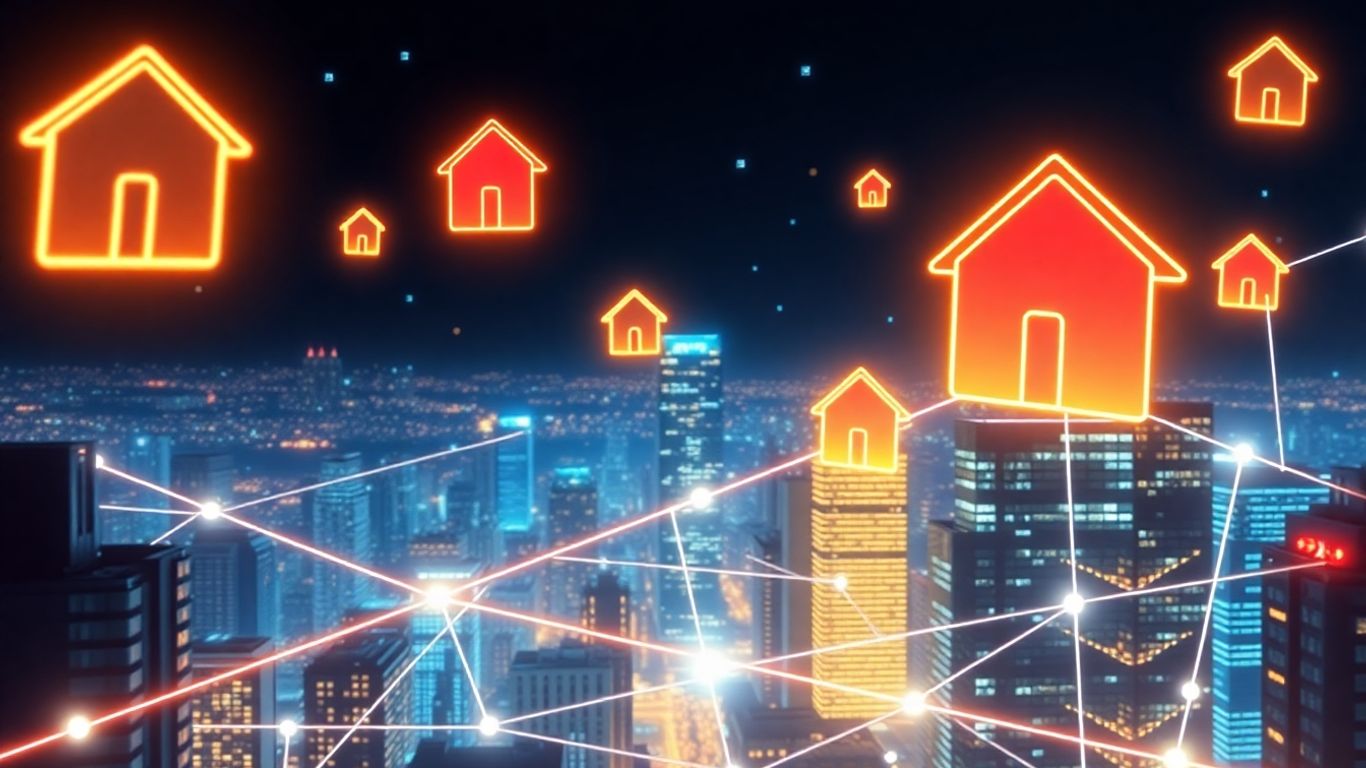
Blockchain Platforms and Protocols
So, what actually makes tokenized mortgage-backed securities (MBS) tick? It all comes down to the tech underneath. We're talking about blockchain platforms, the digital highways where these tokens live and move. Think of it like choosing the right road for your car – some are super fast and efficient, others are a bit more basic. Different blockchains have different strengths. Some are built for speed, handling tons of transactions quickly, which is pretty important when you've got lots of people buying and selling these MBS tokens. Others are designed with extra security features, which, let's be honest, is a big deal when you're dealing with something as significant as real estate investments. The choice of platform can really affect how smoothly everything runs and how secure it all is.
Smart Contract Development for Automation
Then there are smart contracts. These are basically self-executing agreements written in code. They live on the blockchain and automatically do things when certain conditions are met. For tokenized MBS, this is a game-changer. Imagine payments from mortgage holders getting automatically distributed to token holders – no more waiting for manual checks or dealing with a bunch of paperwork. Smart contracts can handle all sorts of tasks like that, from tracking who owns what to making sure rules are followed. This automation cuts down on a lot of the old-school hassle and potential for mistakes. It means things can happen faster and more reliably.
Interoperability and Standardization for Growth
Now, for this whole tokenized MBS thing to really take off, different systems need to be able to talk to each other. That's where interoperability comes in. Right now, you've got various blockchain platforms out there, and they don't always play nicely together. If you want investors to be able to easily trade tokens across different platforms or for different types of assets to connect, we need common standards. Think of it like having different phone companies – you want to be able to call anyone, right? Standardization helps make sure that tokens created on one system can be recognized and used on another. Without it, the market could get pretty fragmented and confusing, which isn't great for growth. It's like trying to build a city where every house uses a different electrical plug – it just doesn't work well.
The Evolving Regulatory Landscape
US Regulatory Framework for Tokenized Assets
So, let's talk about the rules. Right now, the US doesn't have a single, neat package of laws specifically for tokenized mortgage-backed securities. It's more like we're fitting these new digital assets into existing frameworks, and sometimes it feels a bit like trying to put a square peg in a round hole. If a token is seen as a security, then the Securities Act of 1933 and other SEC rules come into play. This means things like registration and making sure investors get all the important details. The SEC is actively working on clarifying things, trying to make sure these tokens are treated fairly and safely, which is a big deal for anyone wanting to invest.
- Understanding existing securities laws: Knowing which rules apply is step one.
- Working with regulators: Talking to agencies like the SEC can help clear up confusion.
- Structuring tokens carefully: How you set up your tokens matters a lot for compliance.
The goal is to find a balance. We want to encourage new ideas and technology, but we absolutely need to protect people who are putting their money into these investments. It's a tricky line to walk.
European Regulatory Environment
Over in Europe, things are a bit more structured. Regulations like MiFID II and the Markets in Crypto-Assets (MiCA) regulation are setting clearer standards. These rules focus on making sure transactions are transparent and that investors are protected. It's a move that helps make tokenization feel more legitimate and could encourage bigger financial players to get involved.
Asia-Pacific Regulatory Developments
In the Asia-Pacific region, different countries are taking different paths. China, for instance, is looking into tokenizing real-world assets to make things like supply chains run smoother, even though they have a ban on cryptocurrencies. This shows a more controlled approach to using tokenization for practical business needs. It's interesting to see how different parts of the world are adapting these new technologies within their own legal systems.
Market Outlook and Investor Perspectives
So, what's the deal with tokenized mortgage-backed securities (MBS) going forward? It looks like things are really picking up steam. We're seeing a shift where digital assets are becoming a bigger part of investment portfolios, especially in real estate. The market for tokenized real estate assets is projected to grow significantly, moving from about 1.3% in 2023 to an estimated 6.0% by 2027. This tells us investors are feeling more comfortable putting their money into these digital forms of property ownership.
Current Market Size and Growth Projections
The numbers are pretty interesting. While it's still a developing area, the potential is huge. Think about it: traditional real estate investment often means tying up a lot of capital for a long time, and selling can be a real headache. Tokenization aims to fix that. It breaks down these big, illiquid assets into smaller, more manageable digital pieces. This means more people can get involved, even with less money to start. We're talking about a market that could potentially reach $1.5 trillion by 2025, which is a massive jump from where it is now.
Attracting Institutional Investors
Big players are starting to pay attention. Names like BlackRock, Fidelity, and Goldman Sachs are exploring how tokenization can make things smoother and more efficient in managing assets. They see the benefits of increased liquidity and the potential for new investment avenues. It's not just about the tech; it's about how this tech can change the game for how they operate and offer products to their clients. They're looking at how to integrate these digital assets into their existing systems, which is a big step towards wider acceptance.
Democratizing Access to Real Estate Investments
This is where things get really exciting for the average person. Tokenization is making it possible for more people to invest in real estate. You don't necessarily need tens of thousands of dollars anymore. With fractional ownership, you could potentially get started with as little as $1,000, or even less on some platforms. This opens up opportunities to invest in properties that were previously out of reach, allowing for more diversified portfolios. It's about making high-value assets accessible to a broader range of investors, not just the super-wealthy. This shift could really change who gets to participate in the real estate market.
The future of tokenized mortgage-backed securities isn't just about new technology; it's about building a financial system that's more open and straightforward for everyone involved. As the technology gets better and the rules become clearer, this new way of investing could really shake up the real estate market, offering new chances for buyers, owners, and companies alike.
Here's a quick look at what makes this attractive:
- Lower Entry Costs: Invest in high-value properties with smaller amounts of capital.
- Increased Liquidity: Easier to buy and sell portions of real estate assets.
- Greater Transparency: Blockchain provides a clear record of transactions.
- Global Reach: Access to markets and investors worldwide.
It's still early days, and there are hurdles like regulations and making sure the technology can handle the load. But the direction seems clear: tokenization is set to make real estate investment more accessible and efficient for a lot more people. You can find platforms that help with fractional property ownership and explore how these digital assets are changing the investment landscape.
Wrapping It Up
So, tokenizing mortgage-backed securities isn't just some futuristic idea anymore. It's actually happening, and it's changing things. By using blockchain, we're making it easier for more people to get into real estate investing, which is pretty cool. Plus, things are becoming more open and less of a hassle to deal with. There are still some kinks to work out, like making sure everyone's on the same page with rules and that the technology can handle everything. But honestly, the direction this is heading seems pretty solid. It's opening up new doors for investors and could make the whole process of buying and selling property smoother for everyone involved. It feels like we're at the start of something that could really reshape how real estate finance works.
Frequently Asked Questions
What exactly are tokenized mortgage-backed securities?
Think of tokenized mortgage-backed securities (MBS) as digital versions of the old kind. Instead of paper, they're like digital tokens on a computer system called a blockchain. Each token represents a piece of a bunch of home loans. This makes it way easier to buy, sell, and trade these investments.
How are these digital securities different from the regular ones?
Regular securities can be slow and complicated. Tokenized ones are digital, meaning they can be traded super fast on special online markets. This usually means lower fees and easier access for more people who want to invest.
What's so good about investing in these tokenized MBS?
Investing in tokenized MBS can be pretty neat. You get more chances to buy and sell your investment quickly (that's called liquidity). The costs are often lower because fewer middlemen are involved. Plus, everything is recorded clearly on the blockchain, making it more open and trustworthy.
Are there any dangers or things to watch out for with tokenized securities?
Like any investment, there are risks. Rules about these digital assets are still being figured out, so they might change. There's also a chance of computer security problems, and we're still waiting to see how widely these tokenized investments will be used.
How does the blockchain technology make these investments safer?
Blockchain is like a super secure digital notebook that everyone can see but no one can erase or change. Every time a token is bought or sold, it's written down in this notebook. This makes it really hard to cheat or mess with the records, and it’s easy to check who owns what.
Can I actually start investing in tokenized mortgage-backed securities?
Yes, you can! There are special websites and apps where you can buy these tokenized investments. Just remember to do your homework first to understand exactly what you're buying and all the potential risks involved.

